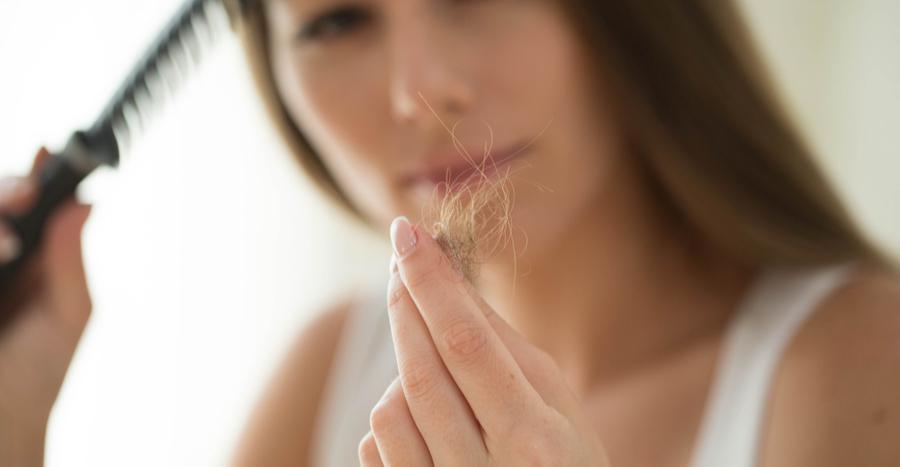The most common type of hair loss, androgenetic alopecia, is inherited. But for men and women who begin to lose healthy, thick hair suddenly and noticeably, it’s likely a factor other than your genes is causing your hair loss.
At Honest Hair Restoration in Tampa and Bradenton, Florida, and serving the Greater Tampa area, board-certified physician Martin Maag, MD, and the care team not only help restore your hair, we help you understand what’s causing your hair loss in the first place.
If you’re one of the millions of American men and women struggling with hair loss, your poor diet could shoulder as much of the blame as your family history. Let’s take a closer look at the link between poor diet and hair loss as well as the solutions that can help restore your hair.
The link between diet and hair loss
Cutting calories dramatically and overeating both contribute to deficiencies or excesses of vitamins and minerals essential for hair health.
If you’re concerned your diet is contributing to your hair loss, be sure to talk to Dr. Maag about the link between specific nutritional deficiencies you may have and your current symptoms.
In the meantime, here’s a look at a few of the key dietary factors that affect hair health:
Protein
Having enough protein in your diet is important for overall hair health. Your hair is composed of protein, and diets extremely low in protein can cause your hair growth to slow and in some cases even fall out.
If you live in America, however, it’s unlikely too little protein is the problem. The average American eats more than twice the recommended daily amount (RDA) of protein, and even American vegans exceed the protein RDA for adults.
In fact, you may be eating too much protein for hair health. Excess protein can lead to a biotin (vitamin H) deficiency, which can cause hair loss. If you’ve noticed your hair feels brittle and is starting to shed more often than it should, talk to your doctor about your protein intake.
Key minerals
Iron, zinc, and selenium are important minerals for your hair. For example, a diet with too little iron can cause anemia, which disrupts the nutrient supply to your hair follicles and can interrupt the hair growth cycle.
Zinc and selenium are essential trace minerals that you must consume through eating since your body can’t produce them on its own. Multiple studies demonstrate that selenium deficiencies affect the health of your scalp and hair follicles, and too little zinc is known to cause acute and chronic hair loss.
To keep your hair as healthy as possible, reach for heart healthy nuts, which are good sources of zinc and selenium, as well as foods rich in iron, such as lentils and other legumes, and dark leafy greens, like spinach, broccoli, and kale.
Key vitamins
A poor diet either lacks important vitamins or contains levels higher than healthy for humans. And when it comes to hair loss, being deficient in or having too much of several key vitamins can trigger or exacerbate thinning hair.
If you take in more vitamin A than you should, for example, your body can’t process the vitamin, and too much of it circulates throughout your body. The excess vitamin A can cause sudden hair loss and an interruption in the hair growth cycle.
Vitamin B7, or biotin, plays an important role in your hair health, and is found in several food sources, including whole grains, soy, and yeast. When you don’t have enough biotin, your hair becomes brittle and begins to fall out.
Not consuming enough fruits and vegetables high in vitamin C makes it more difficult for your body to absorb iron, and as discussed previously, iron deficiency causes hair loss. To keep your hair healthy, reach for citrus fruits, potatoes, green peppers, cabbages, and tomatoes.
How hair restoration can help
No matter what’s causing your hair loss, Dr. Maag and the team at Honest Hair Restoration understand the negative emotional and psychological impact losing your hair can have on your quality of life.
At Honest Hair Restoration, we create a customized treatment plan based on your scalp and hair health as well as your family and medical history. Dr. Maag and our team provide support every step of the way, from your initial consultation through your hair restoration treatment.
Depending on your hair loss and restoration needs, our team may recommend one or more of the following hair restoration treatments:
- Hair transplants
- Exosomal hair restoration
- Follicular unit extraction (FUE)
- Regenerative treatments (like PRP therapy)
- Prescription medications
- Low-level laser treatments
To learn more about the link between diet and hair loss, contact the Greater Tampa area Honest Hair Restoration office near you. Call us at 941-739-9001, or book an appointment online now.







